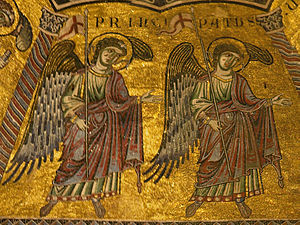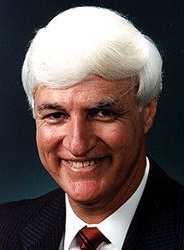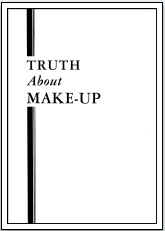Up till the 1980s it was the accepted view that the “rulers of this age” who crucified the Lord of Glory according to Paul’s first letter to the Corinthians were spirit beings. Several scholars explained that they did so by influencing their earthly counterparts to carry out the deed. The passage reads*:
* Two outlier voices arguing that 1 Corinthians 2:6-16 is a non-pauline interpolation into the original letter are those of
Widmann, M. 1979. “1 Kor. 2:6-16. Ein Einspruch gegen Paulus” ZNW 70: 44-53.
Walker, W.J., 2002.
Interpolations in the Pauline Letters. Bloomsbury T&T Clark, London. pp. 127-146.
Widmann’s arguments are challenged by
O’Connor, J.M., 2009. Keys to First Corinthians: Revisiting the Major Issues, Oxford University Press, New York. 257-260
Walker’s argument takes O’Connor’s rebuttals into account and attempts to strengthen Widmann’s case.
I may set the pros and cons for interpolation in a future post. In this post I assume the passage was penned by Paul.
We do, however, speak a message of wisdom among the mature, but not the wisdom of this age or of the rulers of this age [ἀρχόντων τοῦ αἰῶνος τούτου], who are coming to nothing. No, we declare God’s wisdom, a mystery that has been hidden and that God destined for our glory before time began. None of the rulers of this age [ἀρχόντων τοῦ αἰῶνος τούτου] understood it, for if they had, they would not have crucified the Lord of glory. — 1 Corinthians 2:6-8 (NIV)
Thus in the 1985 edition of A Translator’s Handbook for 1 Corinthians Paul Ellingworth could write of the passage translated “rulers of the age”:
A majority of scholars think that supernatural powers are intended here.
(p. 46. Cited in Doherty, E. 2009. Jesus: neither God nor man: the case for a mythical Jesus. Age of Reason Publications, Ottawa. p. 222)
Bolded highlighting in all quotations is my own
It is not difficult to find confirmation of Ellingworth’s observation:
Without doubt the usual interpretation [of 1 Corinthians 2:6-8] at present is that the rulers are demonic spiritual forces, and this is mainly due to Everling’s recovery of the idea. It has, however, a long pedigree, being found in Origen and Marcion, and is currently supported by, among others, Bultmann, Lietzmann, Delling, Schlier and Barrett.16 . . . .
An allied view is that the rulers are both human and spiritual forces. This is supported by Dibelius, Leivestad, Wendland, Dehn, Caird, and especially Cullmann.18
16 Origen, de Princ. 3.2; Marcion in Tertullian, adv. Marc. 5.6. Bultmann, Theology, I, 147ff; Lietzmann, An die Korinther I, II (Gottingen, 1949), ad loc.; Delling, TDNT, I, 489; Schlier, Principalities, pp. 45f; C. K. Barrett, ‘Christianity at Corinth’, BJRL 46 (1963), 278ff, and I Corinthians, ad loc. . . . .
18 R. Leivestad, Christ the Conqueror (London, 1954), p. 106; J. Wendland, Die Briefe an die Korinther (Göttingen, 1946), p. 19; G. Dehn, ‘Engel und Obrigkeit; ein Beitrag zum Verstandnis von Röm. 13. 1-7’, in E. Wolf (ed.), Theologische Aufsätze fur Karl Barth (Munich, 1936), p. 104; Caird, Principalities and Powers, pp. 16f.
Carr, W., 1981. Angels and Principalities: The background, meaning and development of the Pauline phrase hai archai kai hai exousiai. Cambridge University Press. p. 118
(To assist with identification I hyperlink references that are unclear or lack descriptive detail.)
In the 1987 publication The First Epistle to the Corinthians Gordon D. Fee (disapprovingly) acknowledges the same:
But who are the “rulers of this age”? . . . [T]here has been a growing consensus over many years that the “rulers” are demonic powers,21 or at least that by these words Paul wants the Corinthians to see demonic powers as lying behind the activity of the earthly rulers.22
21The literature here is immense. Among commentators, see Weiss, Moffatt, Lietzmann, Héring, Barrett, Conzelmann. Among others, see R. Bultmann, Theology of the New Testament (ET, London, 1952), I, 259; Wilckens, 60-63; Scroggs, “Paul,” p. 41; BAGD.
22This view is espoused by such various scholars as O. Cullmann, Christ and Time (ET, London, 1962), pp. 191-206; G. B. Caird, Principalities and Powers (Oxford, 1956), pp. 80-82; G. H. C. MacGregor, “Principalities and Powers. The Cosmic Background of St Paul’s Thought,” NTS 1 (1954/55), 17-28; W. J. P. Boyd, “I Cor. 2:8,” ExpT 68 (1957), 158; and Bruce, 38. . . . .
(p. 103.)
A backward look from a 2012 doctoral dissertation (supervised by Richard Hays) reminds us again of what the dominant scholarly view once was, this time approvingly: Continue reading “Are the “Rulers of the Age” in 1 Cor. 2:6-8 Human or Spiritual? – the sea change”
Like this:
Like Loading...






